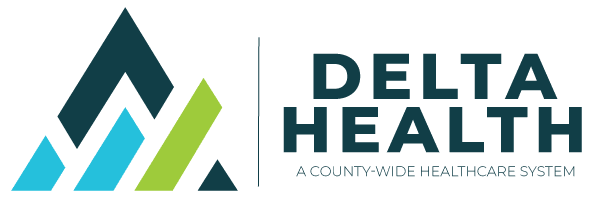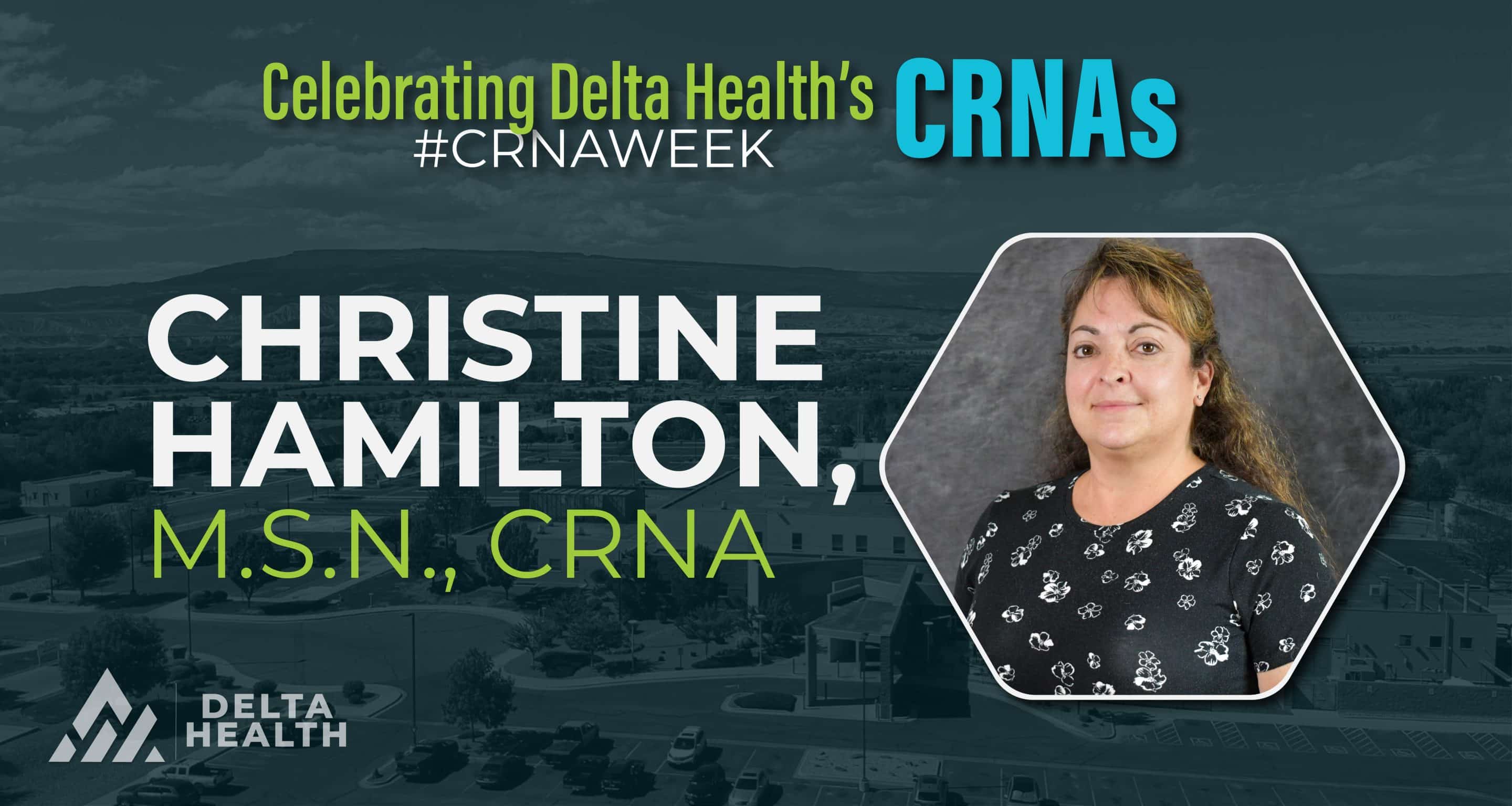CRNA Month: Q&A with Christine Hamilton, MS, BSN, ADN, CRNA
Q: WHAT/WHO INSPIRED YOU TO PURSUE NURSING AS A CAREER?
A: I attended a year and a half at Mesa State College for a Business computer degree. I got bored and by a whim, I applied for LPN school and got in as one of the last alternates.
Q: WHAT/WHO INSPIRED YOU TO PURSUE AN ADVANCED DEGREE?
A: While in my LPN program, I was in my operating room clinical shadowing the OR RN. Chris Marshall, CRNA invited me up to the top of the bed to see what he does as a CRNA. I was intrigued and thus from that day on CRNA was my goal.
Q: HOW DID YOU DECIDE UPON YOUR APRN SPECIALTY FIELD?
A: I thought the circulating RN position was boring frankly. The excitement and control of the patient’s life in my hands as a CRNA was a challenge I was up for.
Q: WHERE DO YOU CURRENTLY WORK?
A: I currently have worked for Delta Health for 15 years. I also have had my own anesthesia staffing company Monument Anesthesia, LLC that my best friend Kathy Akers, CRNA and I started and ran for 5 years. We staffed surgery centers, hospitals, endoscopy suites, and office surgery sites with both RNs and CRNA’s on the Western Slope of Colorado.
Q: GIVEN YOUR SETTING AND ROLE, WHAT ARE SOME OF YOUR PRIMARY ACTIVITIES ON A TYPICAL DAY?
A: I take care of patients’ vital capacities while under anesthesia. As I tell my patients who are concerned that they won’t wake up “that’s what I get paid for is to wake you up.” I perform endotracheal tube intubations and other airway access while performing general anesthesia. I also provide Intravenous sedation and multiple regional anesthetics to help with intra-op and post-op pain control. We provide labor epidurals for our community as well as spinal for c/sections. I make rounds for the previous days’ inpatients and see how their anesthetic had gone, answer questions and repeat blocks if needed. We also do out-of-department conscious sedation for MRI and CT in the radiology department. I am also the anesthesia champion for the Improved Surgical Care Recovery program for Delta Health. In that aspect, I review charts, do staff education, and meet with the ISCR committee to get certain surgical pathways set up. ISCR helps decrease hospital stays which in turn helps both the patients and the hospital. It also has multiple no-narcotic implications so patients go home often on no narcotics or very little. We guide our anesthetics to use as little narcotic intra-op as well. Anything we can do to help the opioid crisis and ensure our patients have the best surgical process as possible.
Q: WHAT HAVE BEEN YOUR BIGGEST CHALLENGES THUS FAR IN YOUR ADVANCED NURSING CAREER?
A: There are many challenges in anesthesia on a daily basis. Our specific community is economically poor and thus health care isn’t had by all. So often I have to emergently take care of patients that are either really ill and being treated by a physician or patients that are ill and have had no healthcare treatment at all.
Q: FUTURE GOALS FOR ONGOING LEARNING:
A: If I were to go into teaching I would obtain my DNP in anesthesia. At this point, I’m still focusing on my family.
One thing that I do enjoy is mentoring CRNA students. It is nice to see them “get it” toward the end of their schooling. I also have had a few RNs do their Caprock rotations (preceptorships) with me. I also encourage high school students to shadow me in the OR so they can see what I do.


